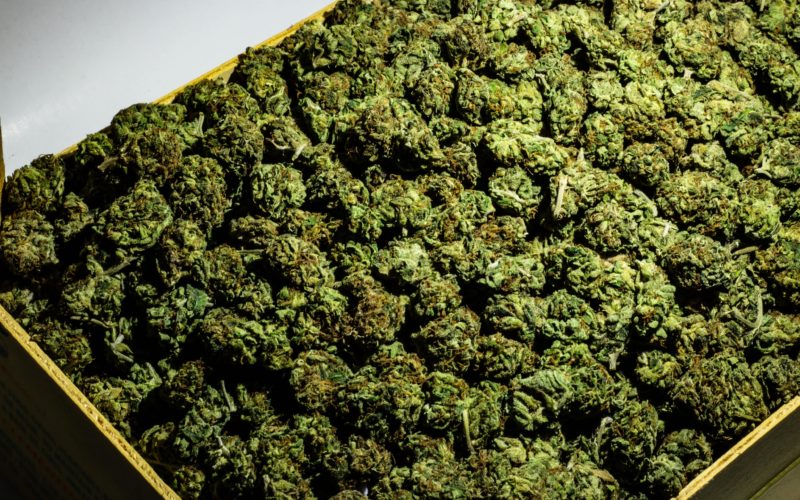Government
Oklahoma Supreme Court To Consider Whether Legalization Initiative Will Qualify For Ballot

The fate of a recreational cannabis proposal in Oklahoma hangs in the balance.
The Oklahoma Supreme Court on Tuesday agreed to settle a dispute surrounding a recreational cannabis initiative that could appear on the state’s ballot this year, giving hope to activists that the proposal may still qualify.
Last week, the prospects for the initiative appeared grim. Although the Oklahoma secretary of state confirmed that organizers had submitted more than the requisite number of signatures for the proposal to qualify for the ballot, supporters lamented that it likely would not be certified before the August 29 deadline.
As the Associated Press detailed on Tuesday, Oklahomans for Sensible Marijuana Laws, the group behind the proposal, known as State Question 820, “gathered enough signatures to qualify…for a statewide vote, but because it took longer than usual to count the signatures, it’s not clear if there is enough time to get the question printed on ballots ahead of the Nov. 8 general election.”
Supporters of State Question 820 petitioned the Oklahoma Supreme Court to settle the matter.
“Since filing their initiative more than six months ago, proponents have done everything in their power to expedite the unwieldy Oklahoma initiative petition process so the People of Oklahoma can exercise their right to vote on the measure at the next general election,” the Yes on 820 campaign wrote in the petition, as quoted by the Associated Press. “Yet they have been stymied by state officials (or their hand-picked vendors) who are either unable or unwilling to perform their administrative duties in a timely and efficient manner.”
On Tuesday, the state Supreme Court “issued an order assuming jurisdiction to decide if the state question will appear on the November 2022 ballot,” according to Tulsa Public Radio, a decision that pleased the SQ 820 campaign.
According to the station, “the measure has to make it through the 10-day publication period before Court Justices will approve it for the general election.”
“We’re actually thrilled,” campaign director Michelle Tilley said, as quoted by local news station Fox 25. “We’re thrilled because the Supreme Court has recognized that we have enough valid signatures to go forward, and we are thrilled because they have left open the possibility that after our 10-day protest period is over, that they have jurisdiction to place this on the ballot in November.”
“We’ve done what we’ve had to do, we’ve really really worked hard,” Tilley added, as quoted by Tulsa Public Radio. “We even turned in our signatures 30 days early. We’ve done everything to try and make these deadlines, and it’s hard. We’re playing by the rules and then the rules change, so.”
The 820 campaign has been stymied in particular by a new ballot system implemented this year in Oklahoma.
The Associated Press reports that “while the Oklahoma Secretary of State’s Office has typically handled counting signatures in house, the process this year involved a contract with a company connected to a political polling firm to provide software and technical assistance to help verify the voter registration status of signatories,” and that as a result, “supporters say a signature-counting process that typically takes two to three weeks took nearly seven weeks to complete.”
“This new process differs significantly from the historical practice of merely counting the number of individuals who signed the petition without regard for their voter registration status,” Oklahoma Secretary of State Brian Bingman said in a statement, as quoted by the Associated Press. “Our office has been in constant communication with the proponents and we look forward to working with them and other interested parties as we continue to improve this new process.”